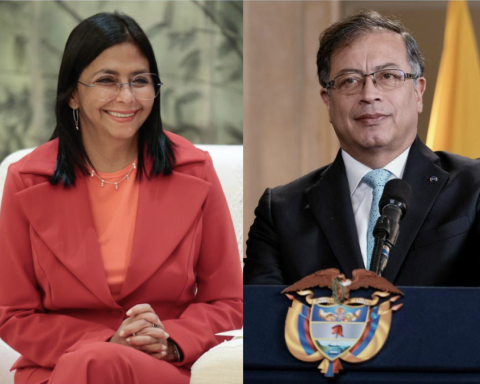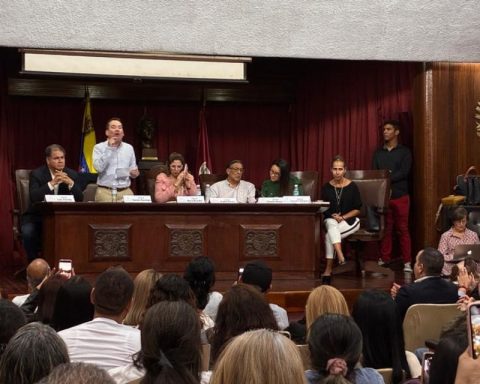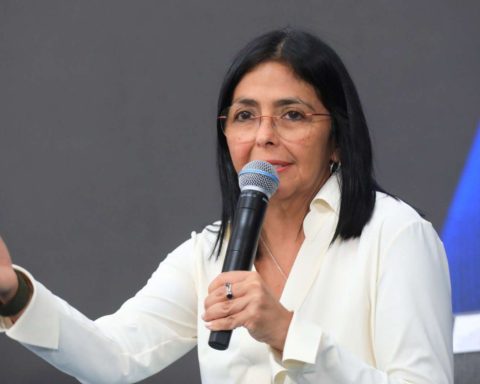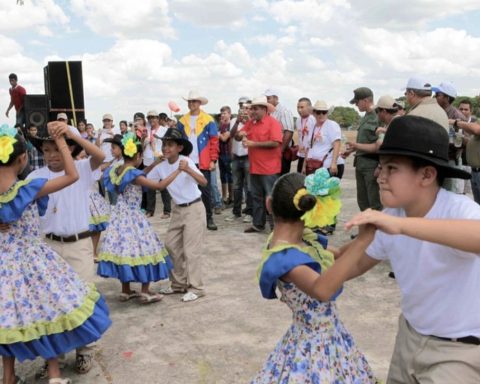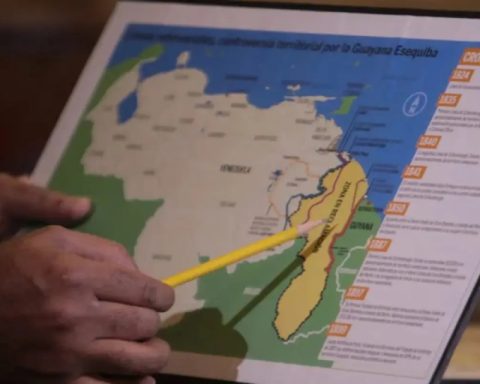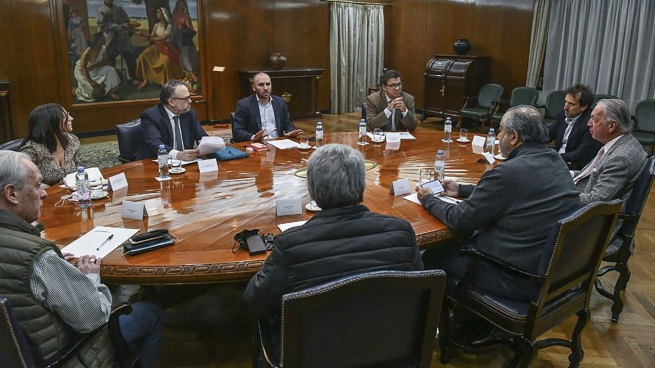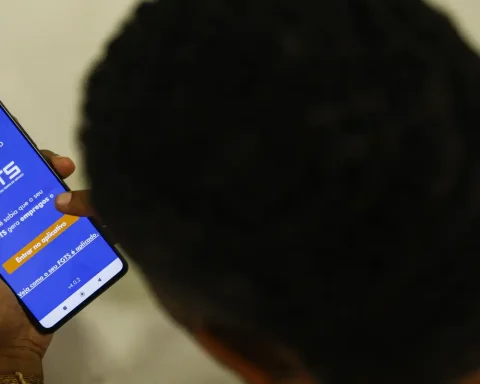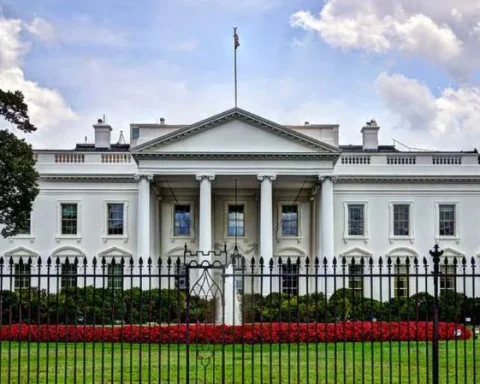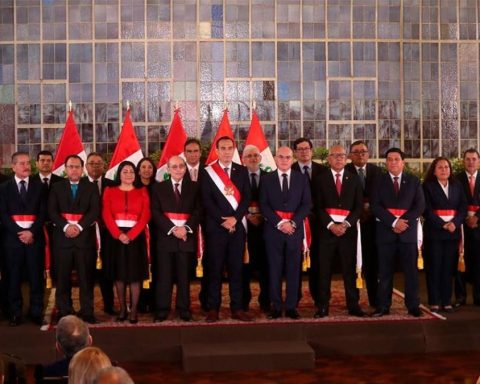Maracaibo’s sun is so abrasive that it can break roof tiles, its inhabitants exaggerate. Walking to the sound of about 35 degrees Celsius, without buses or public service cars in sight, exhausts. For this reason, citizens like Wendy Valbuena have chosen to embark daily on the fashionable means of transport in the west of the city: pedicabs.
They are not conventional transport units. These are bicycles modified to carry two or more passengers in seats inside large boxes on the backs of their drivers; they have fabric awnings on the roof and sides; they have spaces to load passenger belongings; some even display music players and flashy rear-view mirrors.
“The advantage is that you don’t go on foot, because there are no cars” of public transport, he tells the voice of america Wendy, in her 50s, sitting on a cushion behind a young chauffeur wiping sweat from pedaling.
The pedicab emerged in that city in western Venezuela during the pandemic by COVID-19, when, since March 2020, local governments restricted urban transport to avoid greater waves of contagion.
It was born as an alternative for short routes and, since then, they have multiplied to number hundreds in the streets surrounding La Curva de Molina, the epicenter of one of the most impoverished areas of the city.
Wendy, meanwhile, is a regular customer. She prefers to pay a dollar to “pedicab drivers” so that they move her frequently to and from her home, several blocks away from that commercial point in the west. “She has nothing economically. She charges you the same as a bus charges you where I go, ”she warns.
Although this type of transportation is relatively new in Maracaibo, it is far from being a world innovation. It is common in some Asian cities, such as Shanghai, Sumatra and Beijing, and has a tourist purpose in other latitudes, such as some parts of Europe and the United States. In Mexico, it emerged as a massive mobilization option in the capital since the end of the last century.
The one in Maracaibo, however, is more like the “bicitaxi” in Cuba, since the lack of public transport due to lack of fuel paid for its birth.
Kilometer-long queues of vehicles, including buses and taxis, have formed every day at the city’s service stations for years. There is not enough fuel for so much demand, according to business associations and unions.
15 years ago, the city had a master transport network. There were buses that punctually passed by the stops every 30 minutes. Now, the alternative in the west is the rickshaw. The current mayor, Rafael Ramírez, a critic of Maduro, even branded this new means of mobilization as a “blood traction.”
“You get very tired”
“Trip, trip, trip!” shouts Juan Carlos Amaranto, a dark-skinned man in his twenties, at one of the four corners of La Curva de Molina. He tries to attract customers by yelling at him, while he waits sitting on his modified bike.
She wears dark socks and sandals. He usually works from early morning until 9:00 at night to earn as much money as possible. He urges it.
“In my house, right now things are tight. There is no entry (of money), only the work is me in the wheelbarrow”, she tells the VOA.
His pedicab is one of the simplest available in the area: the passenger seat fabric is ripped on one side, like his pants; and natural wood planks serve as supports for the backs and the floor itself.
Others wear fabrics painted in bright colors, such as fluorescent red and blue. Some even print eye-catching logos of international shoe brands, energy drinks and Formula 1 teams. The idea is to make them more attractive than the competition, nourished these days, their drivers explain.
Having a great physical condition is an unwritten condition to work as a pedicab driver. Sometimes, they are mobilized with several passengers and more than 100 kilos in tow. Ney Manuel Palmar, a skinny young man who drives one of the transport carts, boasts of having “stamina” to get it running.
“If you don’t have it good, it won’t give you the day, because you get very tired,” he shares with the voice of america. “Sometimes it is difficult to get passengers, because there is a lot of competition. There are too many bikes and the passenger chooses the one he feels most comfortable with, ”she mentions, as a client gets off her bike.
The need as energizer
The need to subsist is what drives pedicab drivers in a country that has won the crown of the world’s highest inflation in the last 12 months, at 340.4%, according to official figures from the Central Bank of Venezuela.
The minimum rate is one dollar or five bolivars (they usually charge a higher rate than the official exchange rate of 4.3 bolivars per US currency). They cover from two to 10 blocks in their shorter runs, but they can travel to other areas of Maracaibo, tens of kilometers away from La Curva.
They pedal with passengers in tow in their drawers until they add 10, 15 or 20 dollars a day. Alejandro, one of the bike taxi drivers in the west of the city, admits that the job is tiring. “It’s difficult, this is very rough, this is for donkeys,” he confesses.
The young man, of the Wayuu race, has been working in this occupation for three months. Building a commuter bike can cost them $200 to $300. He is a fortune in a nation whose monthly minimum wage hovers around $30.
“You don’t eat well here, there’s no work, the only thing there is is this,” says Alejandro, while a Colombian vallenato plays on his stereo.
They themselves calculate that there are “more than a thousand” pedicab drivers in western Maracaibo. The police, not infrequently, check their personal documentation and demand invoices for the materials with which they build their means of transport.
Every day, municipal security agents approach where they congregate to demand that they clear those areas. Even so, they continue to work, without fixed hours, without belonging to any union or formally grouped.
“One has to do it for the kids, one has to take them to eat. This is enough to just eat, plus nothing, ”says Luis Raúl, one of them, who, he says, buys a kilo of rice for his family every day for one dollar (Bs. 5).
Alfredo, another of the bicycle carriers, also indigenous, believes that the Venezuelan economy is “ugly” and does not bode well for it.
Meanwhile, he protects his family by pedaling many kilometers in exchange for money. “You have to take a pigeon out of life and nothing else,” she says, while waiting, between hope and urgency, for Venezuelans in urgent need of a ride.
Connect with the Voice of America! Subscribe to our channel Youtube and turn on notifications, or follow us on social media: Facebook, Twitter and Instagram.
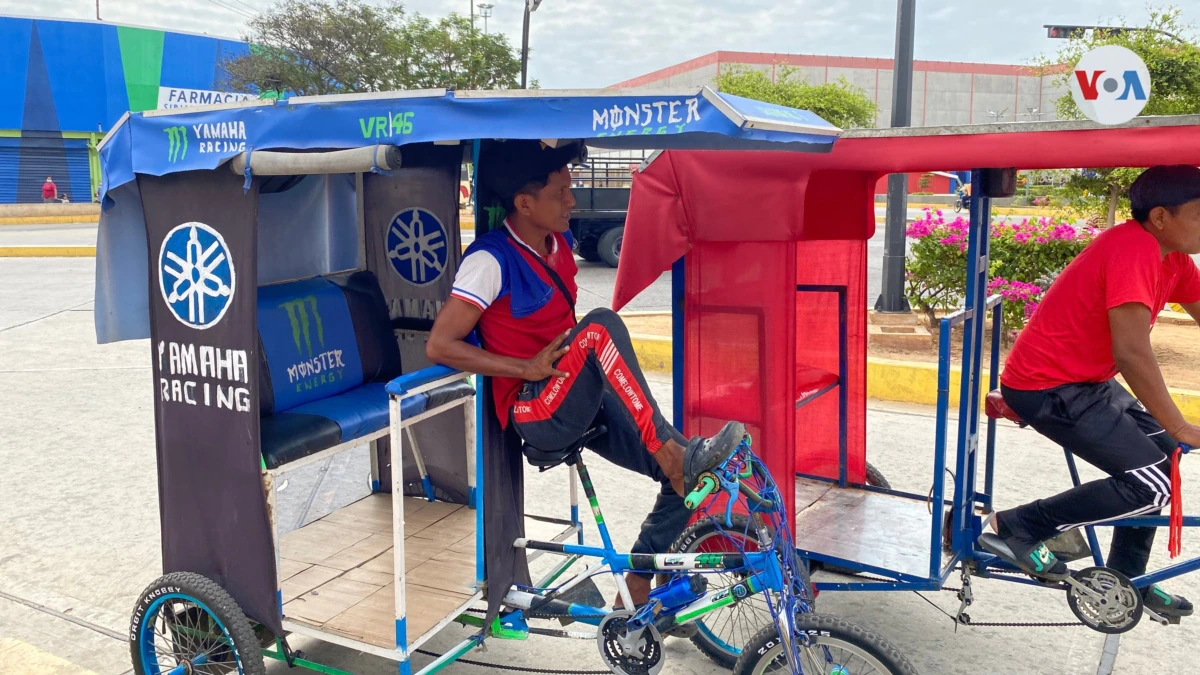
![The “pedicabs” multiply in Venezuela due to the shortage of gasoline Pedicabs in Maracaibo are a frequent means of transportation. [Foto: Gustavo Ocando, VOA]](https://gdb.voanews.com/02870000-0aff-0242-fddc-08da134a64e2_w250_r1_s.jpeg)
